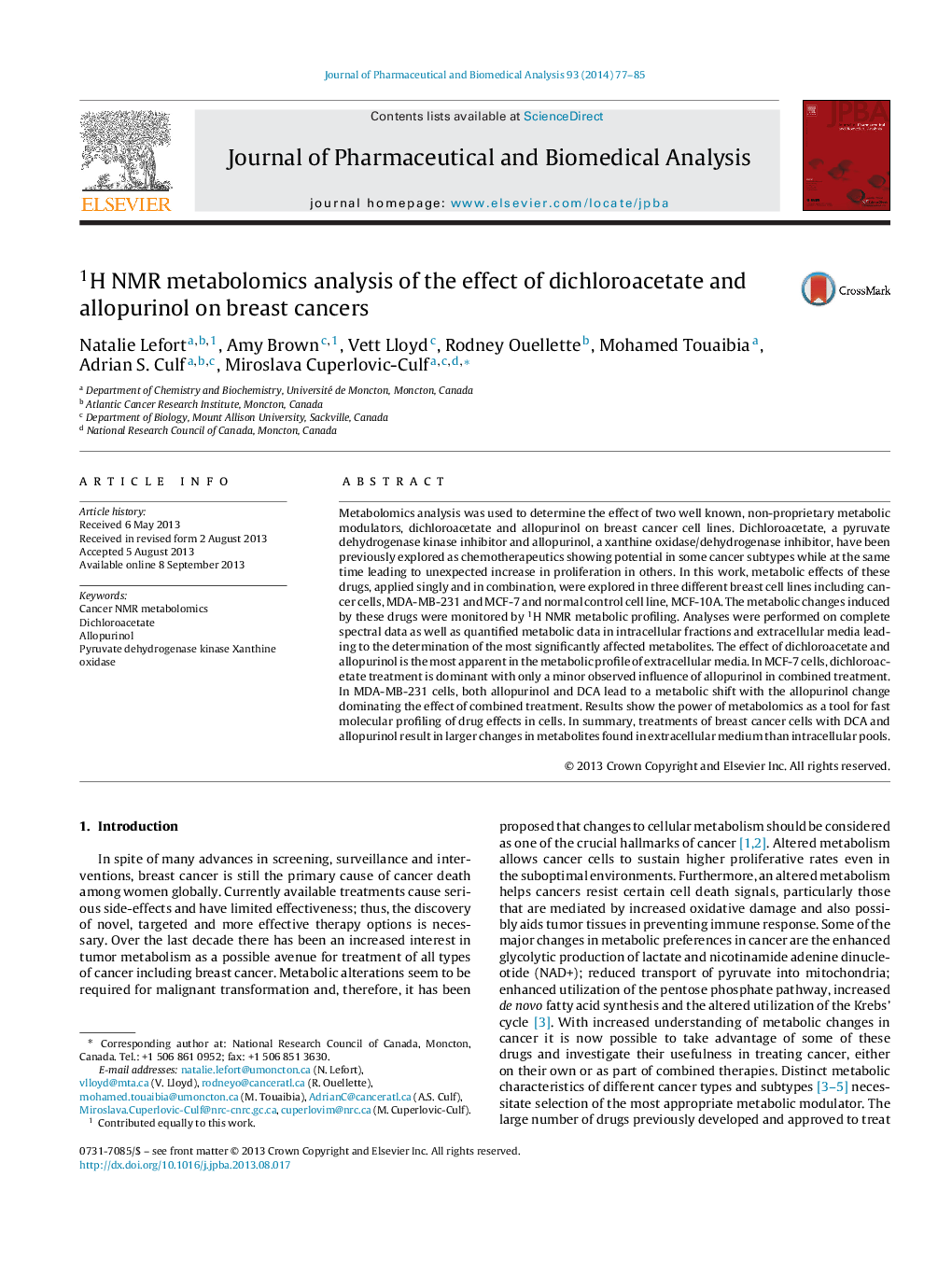| Article ID | Journal | Published Year | Pages | File Type |
|---|---|---|---|---|
| 7630823 | Journal of Pharmaceutical and Biomedical Analysis | 2014 | 9 Pages |
Abstract
Metabolomics analysis was used to determine the effect of two well known, non-proprietary metabolic modulators, dichloroacetate and allopurinol on breast cancer cell lines. Dichloroacetate, a pyruvate dehydrogenase kinase inhibitor and allopurinol, a xanthine oxidase/dehydrogenase inhibitor, have been previously explored as chemotherapeutics showing potential in some cancer subtypes while at the same time leading to unexpected increase in proliferation in others. In this work, metabolic effects of these drugs, applied singly and in combination, were explored in three different breast cell lines including cancer cells, MDA-MB-231 and MCF-7 and normal control cell line, MCF-10A. The metabolic changes induced by these drugs were monitored by 1H NMR metabolic profiling. Analyses were performed on complete spectral data as well as quantified metabolic data in intracellular fractions and extracellular media leading to the determination of the most significantly affected metabolites. The effect of dichloroacetate and allopurinol is the most apparent in the metabolic profile of extracellular media. In MCF-7 cells, dichloroacetate treatment is dominant with only a minor observed influence of allopurinol in combined treatment. In MDA-MB-231 cells, both allopurinol and DCA lead to a metabolic shift with the allopurinol change dominating the effect of combined treatment. Results show the power of metabolomics as a tool for fast molecular profiling of drug effects in cells. In summary, treatments of breast cancer cells with DCA and allopurinol result in larger changes in metabolites found in extracellular medium than intracellular pools.
Keywords
Related Topics
Physical Sciences and Engineering
Chemistry
Analytical Chemistry
Authors
Natalie Lefort, Amy Brown, Vett Lloyd, Rodney Ouellette, Mohamed Touaibia, Adrian S. Culf, Miroslava Cuperlovic-Culf,
